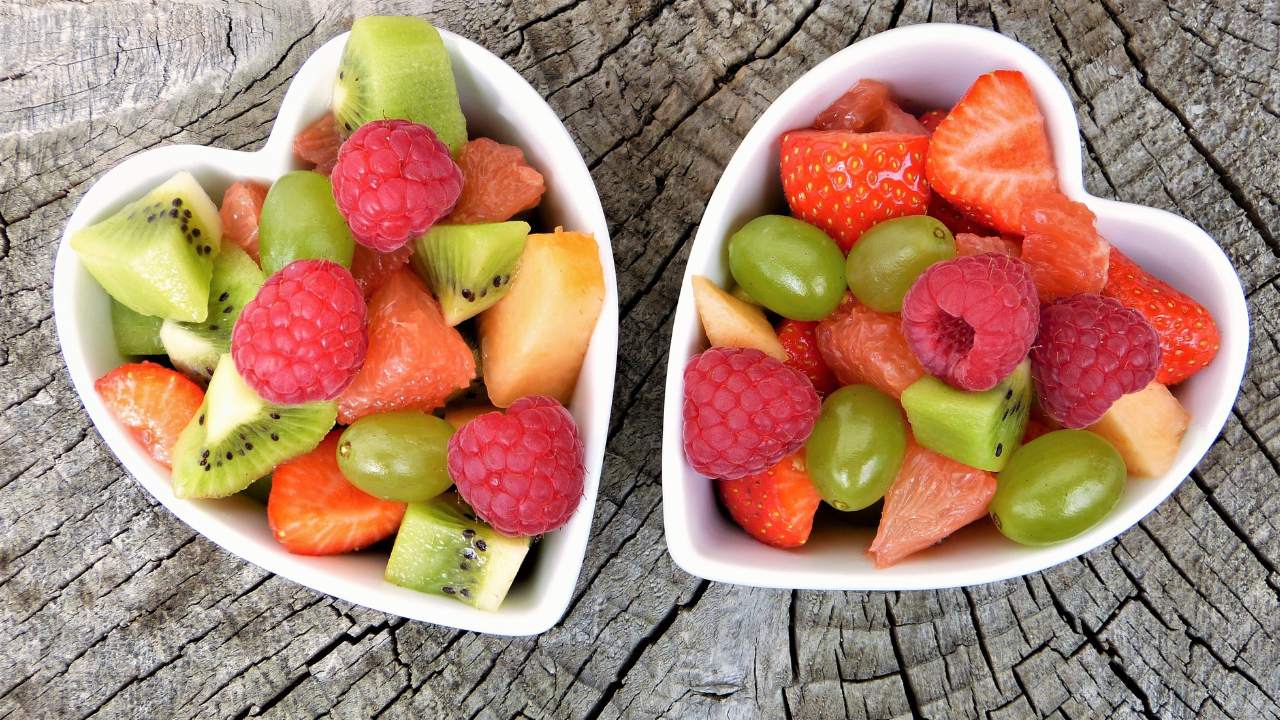What is the Healthiest Fruit in Africa? Africa is home to a diverse range of fruits, many of which are not only delicious but packed with essential nutrients that contribute to overall health. With its warm climate and rich biodiversity, Africa boasts some of the most nutrient-dense fruits in the world. In this post, we’ll explore which fruits are considered the healthiest and why they should be a part of your diet.
Top Healthiest Fruits in Africa
1. Baobab Fruit (Adansonia digitata)
Overview:
- Baobab fruit is often referred to as the “superfruit” of Africa. The Baobab tree is native to several African countries and is known for its long lifespan and nutrient-rich fruit. The fruit is small, round, and covered in a hard shell. When opened, it reveals a powdery pulp that is consumed for its extraordinary health benefits.
Health Benefits:
- Rich in Vitamin C: Baobab is one of the richest sources of vitamin C among fruits, which helps to boost the immune system, protect against infections, and aid in the absorption of iron.
- High in Fiber: It’s loaded with both soluble and insoluble fiber, promoting digestive health and preventing constipation.
- Antioxidants: The fruit contains powerful antioxidants like polyphenols, which help protect the body from free radical damage and inflammation.
- Supports Skin Health: Due to its vitamin C content and antioxidants, Baobab is widely used in skincare products to enhance collagen production and reduce signs of aging.
Nutritional Profile (per 100g of Baobab powder):
- Vitamin C: 300mg (3 times the amount found in oranges)
- Calcium: 250mg
- Fiber: 50g
- Potassium: 1000mg
Uses:
- Baobab fruit is used in smoothies, juices, and as a supplement powder. It is also used in traditional African medicine for various ailments.
2. Mango (Mangifera indica)
Overview:
- Mangoes are one of the most widely cultivated fruits in Africa and are enjoyed across the continent, particularly in tropical and subtropical regions. Mangoes are not only delicious but also incredibly nutritious, providing essential vitamins and antioxidants.
Health Benefits:
- Rich in Vitamin C: Mangoes are packed with vitamin C, which plays a vital role in supporting immune health and improving the appearance of skin.
- Good for Digestion: Mangoes contain enzymes like amylase that aid in the breakdown of food and improve digestion.
- Eye Health: Mangoes are high in beta-carotene (a precursor to vitamin A), which is essential for maintaining healthy vision.
- Antioxidants: Mangoes contain polyphenols, which have anti-inflammatory properties and may help reduce the risk of chronic diseases such as cancer.
Nutritional Profile (per 100g of Mango):
- Vitamin C: 36.4mg
- Vitamin A (from beta-carotene): 54µg
- Fiber: 1.6g
- Potassium: 168mg
Uses:
- Mangoes are commonly eaten fresh, but they can also be used in smoothies, salsas, salads, and desserts. In some African cultures, dried mango is used as a snack.
3. Papaya (Carica papaya)
Overview:
- Native to tropical regions, papayas are widely consumed in Africa for their sweet, tropical flavor and numerous health benefits. Known for its soft flesh and numerous black seeds, papaya is considered a staple fruit in many African diets.
Health Benefits:
- Digestive Aid: Papaya contains an enzyme called papain, which helps break down proteins and improves digestion. It can be used as a natural meat tenderizer as well.
- Immune Booster: The fruit is high in vitamin C, which helps strengthen the immune system and protect against illnesses.
- Skin Health: Papaya is rich in antioxidants, especially beta-carotene and vitamin C, which are essential for healthy, glowing skin.
- Anti-Inflammatory Properties: Papayas contain various compounds like flavonoids and carotenes that reduce inflammation in the body.
Nutritional Profile (per 100g of Papaya):
- Vitamin C: 60.9mg
- Vitamin A (from beta-carotene): 950µg
- Fiber: 1.7g
- Folate: 37µg
Uses:
- Papayas are often eaten fresh, in fruit salads, or as part of smoothies. They can also be used in savory dishes or cooked in soups in some cultures.
4. Acai Berry (Euterpe oleracea)
Overview:
- While native to the Amazon rainforest in South America, acai berries are gaining popularity in Africa due to their powerful health benefits. The small, dark purple fruit grows on acai palm trees and is often consumed in frozen or powdered form.
Health Benefits:
- Rich in Antioxidants: Acai berries are loaded with anthocyanins, which are antioxidants known to fight oxidative stress and inflammation.
- Supports Heart Health: The high levels of antioxidants in acai berries help reduce the risk of cardiovascular diseases by protecting the heart and blood vessels from oxidative damage.
- Promotes Brain Health: Acai berries are believed to improve brain function by protecting against neurodegenerative diseases.
- Boosts Immunity: Rich in vitamin C and other essential nutrients, acai berries help improve immune function and overall health.
Nutritional Profile (per 100g of Acai Berry pulp):
- Vitamin C: 15mg
- Fiber: 2g
- Calcium: 20mg
- Antioxidants: 50-100% higher than other fruits (in terms of ORAC value)
Uses:
- Acai berries are typically consumed as smoothies, bowls, or supplements. Due to their high antioxidant properties, acai is also used in cosmetic products and skincare.
5. Avocado (Persea americana)
Overview:
- Avocados are one of the most widely consumed fruits in Africa. Known for their creamy texture and subtle flavor, avocados are often used in both savory and sweet dishes across the continent.
Health Benefits:
- Heart-Healthy Fats: Avocados are rich in monounsaturated fats, which are considered heart-healthy fats that help lower bad cholesterol (LDL) levels.
- High in Potassium: Potassium is essential for regulating blood pressure, and avocados provide more potassium per serving than bananas.
- Good for Skin: Due to its high content of healthy fats, vitamin E, and antioxidants, avocados support skin health, keeping the skin hydrated and reducing signs of aging.
- Supports Weight Management: The fiber and healthy fats in avocados contribute to feelings of fullness, helping to regulate appetite and support weight management.
Nutritional Profile (per 100g of Avocado):
- Calories: 160 kcal
- Healthy Fats (Monounsaturated): 15g
- Fiber: 7g
- Potassium: 485mg
- Vitamin E: 2.1mg
Uses:
-
- Avocados are widely used in salads, sandwiches, and as a base for spreads like guacamole. They can also be blended into smoothies for a creamy texture.
Health Benefits of African Fruits
The health benefits of African fruits go beyond just providing essential vitamins and minerals. These fruits are known for their:
- Antioxidant Properties: Many African fruits are packed with antioxidants, which help protect the body from harmful free radicals.
- Digestive Health: Fruits like Baobab and Papaya are excellent for improving digestion and maintaining gut health.
- Boosting Immunity: High vitamin C content in fruits like Baobab and Mango helps strengthen the immune system.
- Skin Health: Antioxidants and vitamins in these fruits promote healthy, glowing skin.click Here
Conclusion
When it comes to the healthiest fruits in Africa, Baobab, Mango, Papaya, Acai Berry, and Avocado are top contenders. These fruits are not only delicious but also offer a wide range of health benefits, from boosting immunity to improving digestion and promoting healthy skin. Incorporating these nutrient-rich fruits into your diet can help you maintain a healthy lifestyle and enjoy the natural goodness that Africa has to offer.
FAQs
Q1: Which African fruit is the best for boosting the immune system?
A1: The Baobab fruit is considered one of the best for boosting the immune system due to its extremely high vitamin C content.
Q2: Are mangoes good for digestion?
A2: Yes, mangoes are great for digestion as they contain fiber and enzymes that help improve gut health.
Q3: Can acai berries help with heart health?
A3: Yes, acai berries are packed with antioxidants and healthy fats, which help support heart health by reducing inflammation and cholesterol levels.



